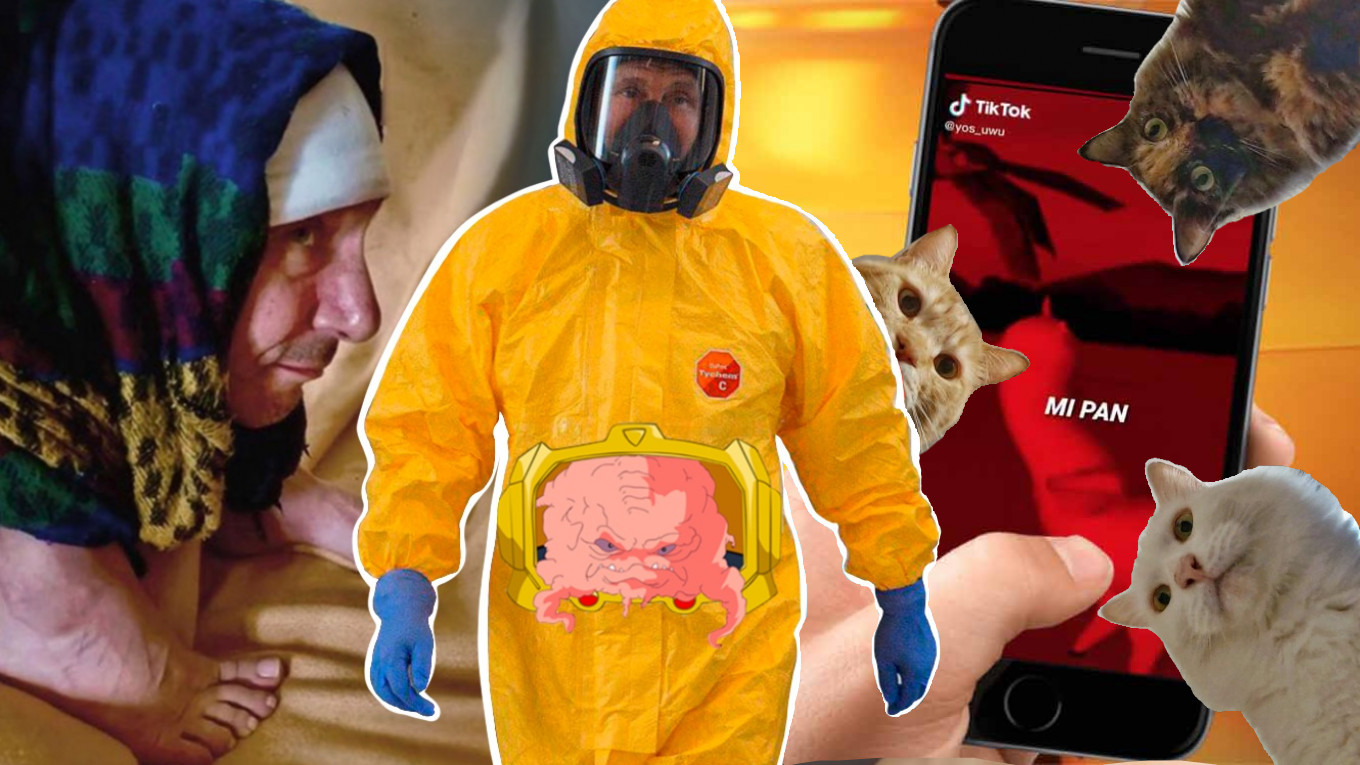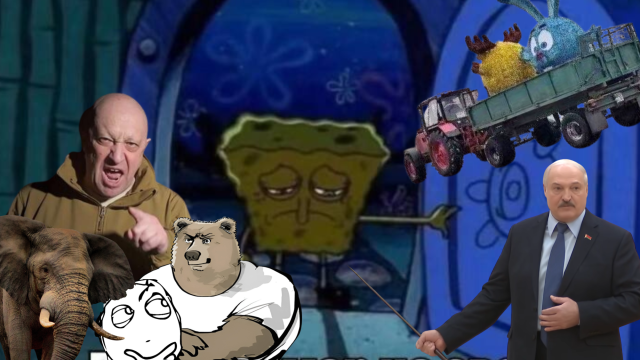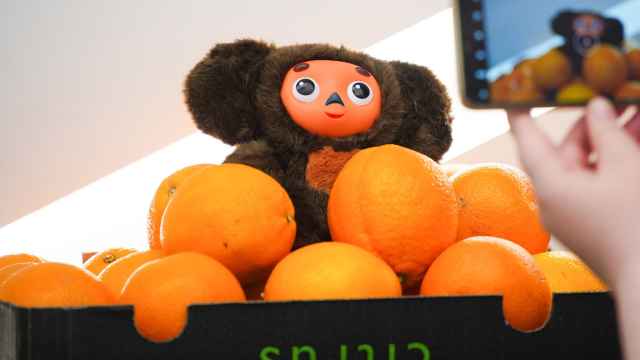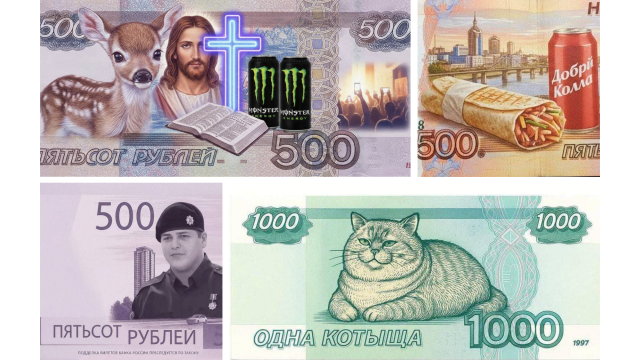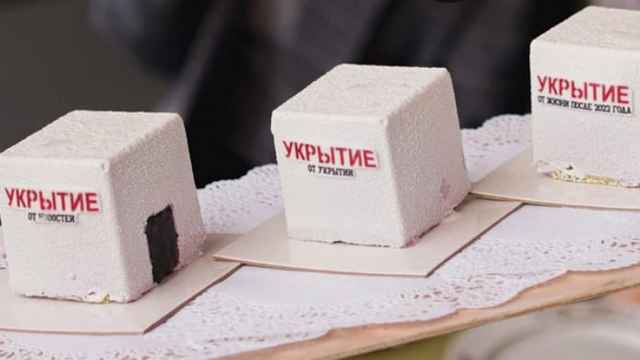The world may have been imploding around us in 2020, but at least we had the Russian internet to keep us entertained.
This year, there was no shortage of witty, irreverent and just plain odd memes from Russia — perhaps because in lockdown Russians had more time on their hands to work their meme magic.
A few of them even spread beyond Russia’s borders, a testament to the power of memes to unify people across cultures. Or maybe the rest of the world simply caught up with that Russian skill of keeping despair at bay with humor, of finding lemonade in lemons.
Without further ado, here’s our retrospective of the best Russian memes that gave us a respite from the worst year ever:
Wide Putin
A supercut of President Vladimir Putin walking through the Kremlin hallways — but make it wide.
The supercut, set to an infectious disco instrumental, was first uploaded to YouTube in June and has racked up 34 million views since. TikTokers in Russia and the U.S. wasted no time in latching on to the absurdity, creating their own spoofs.
To emulate Wide Putin is to take on a hyper-inflated sense of power, machismo and masculinity; the top comment on the original YouTube video describes it as “How 14 year olds feel when a 5 year old calls them ‘sir’.”
It’s unsurprising, then, that Brazilian President Jair Bolsonaro joined in the trend after Putin praised his masculinity at a BRICS conference this fall.
Molchat Doma
Belarusian post-rock band Molchat Doma’s moody, Joy Division-channeling 2019 single “Sudno (Vessel)” was the anthem of the Russian-speaking world this year thanks to its explosion on TikTok.
Young Russians used the song in TikToks showing off the “Soviet vibes” of their surroundings — making their antics among endless apartment blocks, industrial landscapes and hipster nightclubs look more like coming-of-age indie films. Non-Russians used the song to show off what outfits they’d wear if they lived in the Soviet Union and idealize what life might be like outside their modern capitalist world.
Not everyone approves of the hipsterization of the former Soviet bloc, with many — including Molchat Doma themselves — saying it unfairly glosses over the struggles that those who really lived during the Soviet period faced — and, in many places, still face today. As one TikToker put it: “I lived in Siberia for abt a year, and it wasn’t ‘Tumblr grunge vibes’ or whatever.”
But in 2020, being a post-Soviet kid never looked so cool.
“Ayo, Russian school check.”
To the casual pop-culture consumer, the opening lines of “All Star” by Smash Mouth are a relic of the early 2000s, when men with frosted tips, puka-shell necklaces and soul patches dominated the airwaves with reggae-inflected pop-rock. To those of us who are Extremely Online, they’re a punchline that keeps on punching — just as the years start coming and they don’t stop coming.
Russia’s youth, who are as Extremely Online as anyone, set these lyrics to their national anthem in this TikTok trend from late 2019 and early 2020 that captures the essence of the Russian school experience.
“Ayo, Russian school check,” a voice deadpans before the lyrics “Somebody once told me the world was gonna roll me / I ain’t the sharpest tool in the shed” blast forth in distorted volume to the tune of Russia’s national anthem.
It doesn’t make a whole lot of sense, and that’s why it’s brilliant.
Miel Pops
When Russian singer Chernaya Princessa posted a TikTok of herself singing the jingle from a 10-year-old cereal commercial, she hardly expected it to become a bizarre, almost dadaist online craze.
Yet that’s exactly what it did, thanks to this haunting video of a digital llama dancing in the desert to Chernaya Princessa’s sped-up vocal.
The Miel Pops (Honey Pops) jingle was used to soundtrack TikToks of people proclaiming their love for bread (Miel Pops sounds a lot like “mi pan,” Spanish for “my bread”) as well as the offbeat creations of “alt TikTok.”
Natasha, are you sleeping?
Russians are known for their love of cats — but this spring, they took things up a notch with this meme of a group of cats looking down upon the viewer demanding they wake up.
“Natasha, are you sleeping?” the cats ask in the meme's original format. “It’s already 6 in the morning. Get up, we knocked everything over.”
The meme was used to poke fun at everything from the coronavirus and Russian politicians to an obscure historical reference made by Putin. Even American whistleblower Edward Snowden, who this fall announced he will seek Russian citizenship after living there in asylum for years, hopped on the trend.
Isolation art
When millions of Russians were ordered to stay indoors this spring to contain the coronavirus' spread, many found solace in creativity.
In a Facebook group called IzoIzolyatsiya, thousands of self-isolating Russians posted photos of themselves replicating famous works of art, with some truly impressive results. The only rule: Participants could only use materials and items already in their homes to create the replicas. It wasn't long before people from other countries joined in.
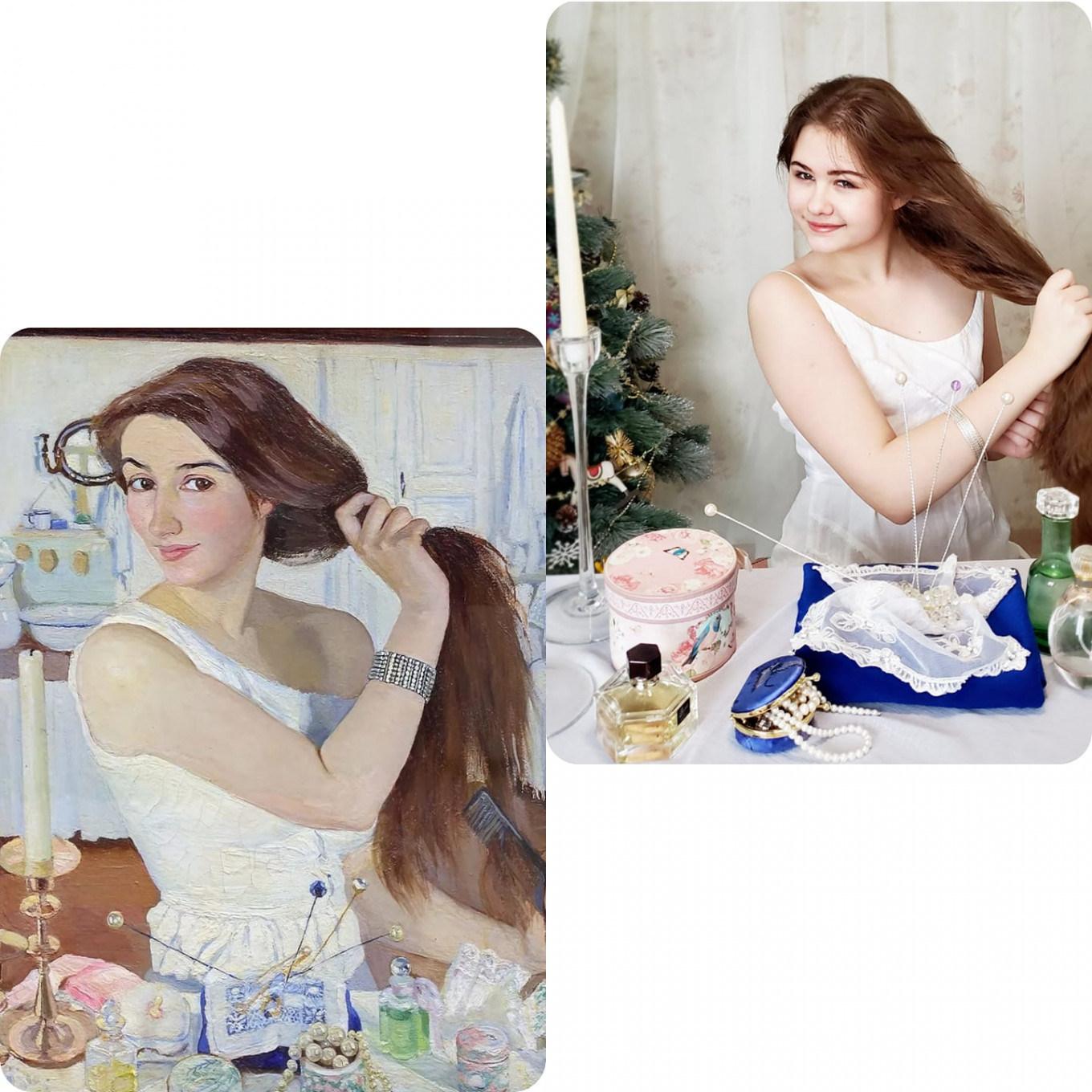
Putin’s hazmat suit
When Putin donned a yellow protective suit to visit Moscow’s main coronavirus hospital this spring, the Kremlin likely hoped he would project an image of stability and courage.
The internet had other plans.
Memes compared the Russian president to a minion from “Despicable Me,” the yellow TeleTubby and Walter White — while footage of Putin putting the suit on was edited alongside a video of Kim Kardashian struggling to fit into a skin-tight catsuit.
Here he is giving his annual New Year's Eve address in the suit:
One meme poked fun at the president’s push for constitutional reforms that would allow him to stay in power past his current term limit, captioning hazmat Putin walking through the Kremlin doors as “Inauguration 2024.” Because in Russia, with great power comes great meme-ability.
Dancing pallbearers
This spring, a group of dancing pallbearers from Ghana rose to worldwide meme fame after a video of their dance was mashed up with “Astronomia,” an EDM song by Russian musician Tony Igy from 2010.
The meme is most often used to deploy dark, macabre humor. It perfectly represents the feeling of schadenfreude, like in this TikTok where it follows a clip of a skier flubbing a landing.
And as the coronavirus spread around the world, many videos riffed on the dancing pallbearers to remind others to practice social distancing.
It’s just another example of how Russian influence could be found in many of this year’s most popular memes — whether you knew it or not.
A Message from The Moscow Times:
Dear readers,
We are facing unprecedented challenges. Russia's Prosecutor General's Office has designated The Moscow Times as an "undesirable" organization, criminalizing our work and putting our staff at risk of prosecution. This follows our earlier unjust labeling as a "foreign agent."
These actions are direct attempts to silence independent journalism in Russia. The authorities claim our work "discredits the decisions of the Russian leadership." We see things differently: we strive to provide accurate, unbiased reporting on Russia.
We, the journalists of The Moscow Times, refuse to be silenced. But to continue our work, we need your help.
Your support, no matter how small, makes a world of difference. If you can, please support us monthly starting from just $2. It's quick to set up, and every contribution makes a significant impact.
By supporting The Moscow Times, you're defending open, independent journalism in the face of repression. Thank you for standing with us.
Remind me later.



